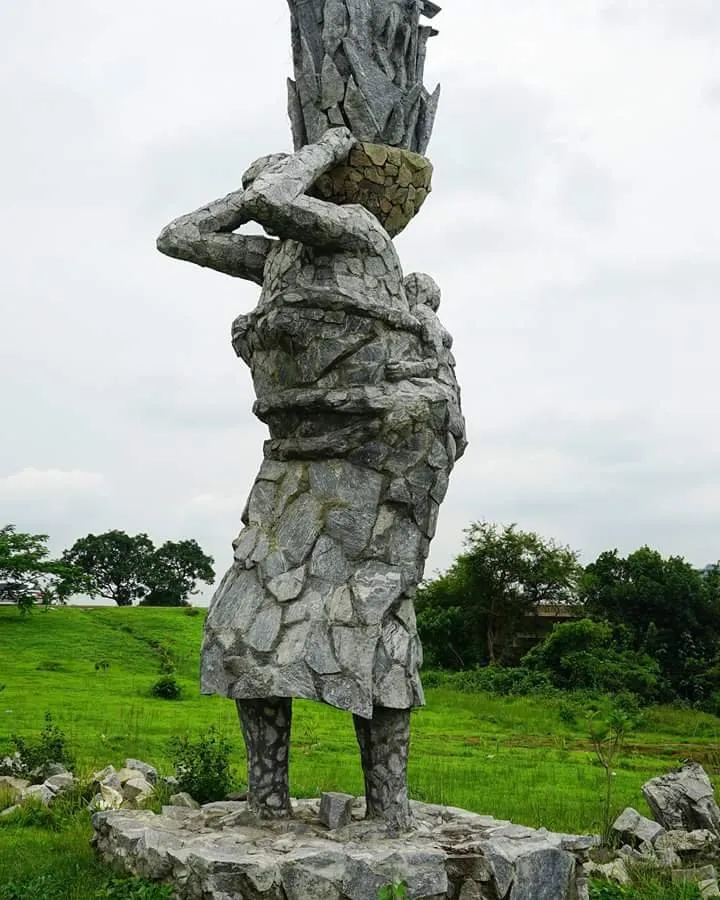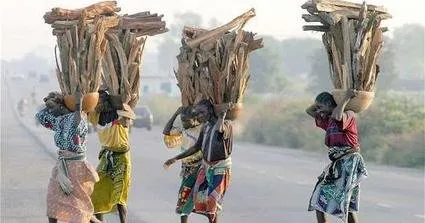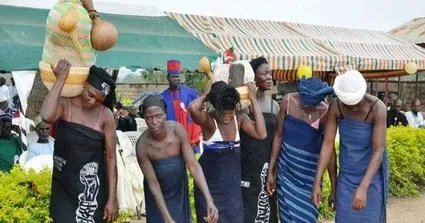The Gbagyi culture is one of the predominant culture in the central Nigeria with a population of about 5 million. They are found in Niger state, Nasarawa state, Jos and federal republic of Nigeria. Their occupation is mostly farming, pottery among their women,woodwork , arts and crafts , and hunters. History holds that the Gbagyi people once live in the northwest side of the country until the fulani during jihad chased them down to the north Central. The Gbagyi people are believe to be peaceful people among other tribe in Nigeria. According to Tanko Chigudu, the Gbagyi people have emerged as a unique breed among Nigerians: their culture shows how much they have come to terms with the universe. Daily they aspire to give life a meaning no matter the situation in which they find themselves.
RELIGION
The Gbagyi people are mostly traditional worshippers until the Introduction of Christianity and islam in the country. They believe in gods known as Eshiya, believe to be powerful. Now, the Gbagyi culture are Islam, Christianity and traditional worshippers. Those who still worship idol carry out some fetish act believing the *Eshiya" needs to be cater for, by offering the blood of animals which could have some spiritual implications on natural resources.
FOOD
The Gbagyi people has a favourite meal known as Ezhey(Tuwo,as the Hausa calls it), which is prepared from maize flour. After a day, the Ezhey is preserved in water and eaten with kandolo,garden egg,fish or ones desire choice of soup. Another meal eaten by the Gbagyi people is pounded yam harvested from farms.
DRESSING AND CULTURE
The Gbagyi people have a unique dressing made from special wool. Their cultural attire is made from black wool and a picture of a woman carrying a calabash on her shoulder weaved with white wool on the black linen.
Kings Burial
The most unique way of the Gbagyi culture is the process involved in the burial of the kings. After a king die, there are rites carried out in the traditional ways. First, a king is not kept in a mortuary because its a tradition that a king's body must be buried that same day he died else the land will be face with calamities , as much as possible people withhold their tears from crying until exactly one year after a king die. The dead king is dressed and sat on a chair dressed in his royal attire as men rain words of praises on him. This is done to hinder people from having the mindset that the king is dead.
The burial process is carried out late in the night when people should be sleeping, to prevent women and children from seeing his dead body and how he is buried. Unlike common men, the king is buried sitting on a chair which was his throne and a small room build in the hole. The tradition holds that, a king body should not be laid on the floor of the ground else the village or town will suffer great disaster.
Marriage
The Gbagyi people before civilize marry among themselves. Anyone who holds a plot of land for farming and could harvest bags of crops and of age was believe to be mature for marriage. The bride price paid is just some sets of clothes packed in a box with some requirements.when it's done, the parents set date for traditional wedding suitable for the couple.
Settlements
The Gbagyi people found In the rural areas settle in small huts and their houses are scanty leaving larger lands for farming and other purpose. The huts are roof with thatches .
Finally my tribe is unique in display of their cultural activities; in dance and musical sounds, they beat drums of different sound based on the occasion. There are drums for sad and happy times, the tone and frequency of notes tells to which purpose it is beaten for at that time.



